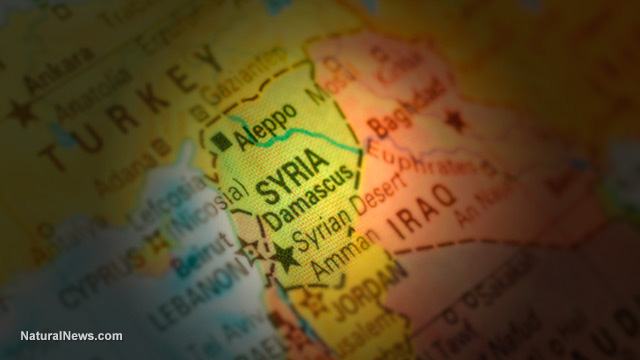 Parler
Parler Gab
Gab
Reshaping the Middle East
Israel’s recent military actions in Syria only add fuel to the fire. Reports indicate that Israeli forces have advanced into strategic areas of southern Syria, taking control of key positions near the Golan Heights. These incursions, which violate the 1974 disengagement agreement between Israel and Syria, suggest that Israel is not just reacting to the chaos — it’s actively exploiting it to expand its influence. What’s even more concerning is the rhetoric coming from some of the rebel groups. One opposition activist even professed his “love” for Israel, crediting its attacks on Hezbollah and Syria for the rebels’ success. This kind of open admiration for Israel by groups that were once considered enemies raises serious questions about who is really pulling the strings in this conflict. The West’s involvement in Syria also follows a familiar pattern. Economic warfare, including decades of sanctions, crippled the Syrian economy and made it vulnerable to collapse. This strategy of weakening a nation through economic means before moving in with military force has been used before — in Iraq, Libya, and elsewhere. It’s a dangerous game that prioritizes geopolitical control over the well-being of ordinary people. The fall of Syria isn’t just about Syria — it’s part of a broader strategy to reshape the Middle East. Control over energy resources, particularly gas pipelines that could bypass Russia and supply Europe with Middle Eastern gas, is a key objective. The proposed pipelines from Qatar and Iran would shift the balance of power in the region, making Syria a critical piece of the puzzle. But at what cost? The human toll of this conflict has been staggering. Millions of Syrians have been displaced, and the country is in ruins. The West’s willingness to support proxy forces, including remnants of ISIS, is a moral failure that undermines any claim to promoting democracy or human rights.Political agenda that does not value human life
The fall of Syria also aligns with Israel’s vision of a “Greater Israel,” a plan to expand its territory into neighboring countries, including parts of Syria, Lebanon, and beyond. This expansionist agenda poses a direct threat to regional stability and could spark a new wave of conflict. As we look to the future, it’s clear that the fall of Syria is just one step in a larger geopolitical chess game. The real question is whether this conflict will escalate into a broader war with Iran. Israel’s eagerness to weaken Iran, combined with the West’s willingness to support destabilizing actions, creates a dangerous dynamic that could spiral out of control. In the end, the fall of Syria serves as a stark reminder of the dangers of foreign intervention and the cost of prioritizing geopolitical interests over human lives. As nations jockey for control in the Middle East, the people of Syria — and the region as a whole — are paying the price. It’s time for leaders to step back, reassess their priorities, and pursue peace rather than war. The alternative is unthinkable. Sources include: MiddleEastEye.net InformationLiberation.com NaturalNews.comTrump: Turkey was behind the Assad regime’s downfall
By Belle Carter // Share
Russia’s RED LINES not mere threats: West’s provocation puts global security in grave danger
By Ramon Tomey // Share
Cold War’s deadly legacy: 100 Missing SUITCASE NUKES threaten modern security
By Ramon Tomey // Share
Mach 7 drone illustrates China’s latest leap in hypersonic technology
By Cassie B. // Share
Governments continue to obscure COVID-19 vaccine data amid rising concerns over excess deaths
By patricklewis // Share
Tech giant Microsoft backs EXTINCTION with its support of carbon capture programs
By ramontomeydw // Share
Germany to resume arms exports to Israel despite repeated ceasefire violations
By isabelle // Share










